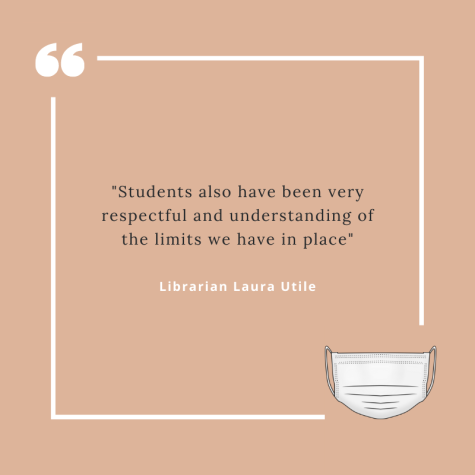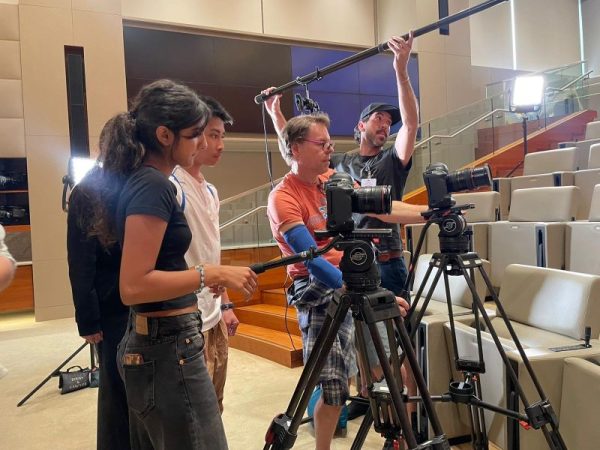Students and staff use various methods to stay safe from COVID-19
Looking into the different precautions MVHS students and staff are taking in order to prevent the spread of COVID-19
With the COVID-19 Omicron variant spreading internationally, MVHS has not been able to avoid the highly contagious virus. Transitioning to in-person learning after more than a year of online learning, FUHSD issued an email on Aug. 13, 2021 detailing the precautions that all students and staff must follow at school. In the email, FUHSD emphasized that “[the district] will be requiring the use of masks at all times outdoors on our campuses, except when eating or drinking,” and that “students will be instructed to wash or sanitize their hands upon arrival into the campus, during transitions between rooms, when using the restroom and at lunch.” With such procedures in place, FUHSD averaged two to four COVID-19 cases per week until the week of Dec. 27, 2021, with MVHS reporting a total of only 8 positive cases during first semester.
However, with the return to school from Winter Break on Jan. 3, the number of COVID-19 cases increased rapidly: a total of 637 FUHSD students and staff tested positive during 17 days of school, and the total number of cases in MVHS rose to 94 by Jan. 21. In response, FUHSD strongly encouraged students and staff to utilize daily testing sites, and distributed at-home rapid antigen testing kits and five KN-95 masks to all students and staff.
Sophomore Paru Joshi shares that while he can “see that [the district] is trying to make [schools] safer,” he still does not “feel entirely safe coming to school.”
“[Omicron] is not as dangerous as the Delta [variant], but I’m still worried that I could somehow spread [COVID-19] to my family members,” Joshi said. “I’m taking precautions such as wearing two masks and staying away from people if I can help it. I [also] always keep alcohol wipes in my backpack and try using hand sanitizer before I eat, and I only sit with two or three people when I’m at lunch.”

Band director John Gilchrist is also taking precautions to keep safe. Gilchrist admits that he became “less diligent with [certain precautions] such as sanitizing his hands” towards the end of last semester, but after the “recent uptake [in COVID-19 cases],” he has been “sanitizing and washing [his] hands every time [he] has to adjust a student’s mouthpiece or touch any student’s equipment.”
Gilchrist also explains how in a large class such as band, there were challenges in attempting to keep students safe from the virus. Because “it was believed that wind instruments would have aerosolized the virus more than normal speaking,” Gilchrist shares that all students were required to “wear masks and have bell covers [on their instruments]” despite it “disrupting the student’s ability to play notes.”
Librarian Laura Utile was also faced with the challenge of preventing COVID-19 from spreading among a large number of students in the library. Utile explains that she started utilizing QR code tickets, a way of monitoring students in order to contact them if they come into close contact with a student or staff member who tested positive. She also shares how she made the decision to “reduce the number of students that could come into the library.”
“We [initially] created 160 tickets because that is how many actual seats there are in the library,” Utile said. “But when we had the recent surge [in COVID-19 cases], we started passing out only 130 of the tickets. We passed out 100 of them first, locked the doors, made sure everyone scanned [their] tickets and was seated, and then let a few more students in.”
Gilchrist also explains how his band and orchestra classes started utilizing the weekly COVID testing at MVHS on Wednesdays to prevent the spread of the virus, and that he is overall satisfied with how the precautions are working out.

“If students forget to take the [weekly] COVID test, they can also submit an at-home COVID test,” Gilchrist said. “What I’m happy about is that we weren’t able to trace any COVID cases back to Band or Orchestra, so I want people to understand that band or orchestra is not a dangerous activity and it is perfectly safe to play [instruments] and rehearse.”
Similarly, despite certain difficulties, Utile believes that the Library went through positive changes due to the pandemic, and she also shares that students and staff have been very cooperative in following the Library precautions.
“Going forward, even if we don’t have to scan [the QR code tickets during tutorial], we would probably still limit the number [of students] to the seats we have available because it is calmer,” Utile said. “Students also have been very respectful and understanding of the limits we have in place. When you do something without understanding the reason behind it, that’s when problems arise. But everyone understands why we made the decisions that we made, so they have been very good at following the rules.”







